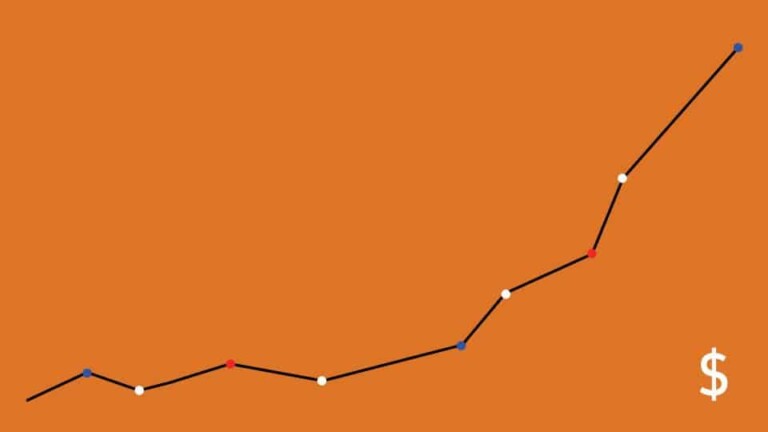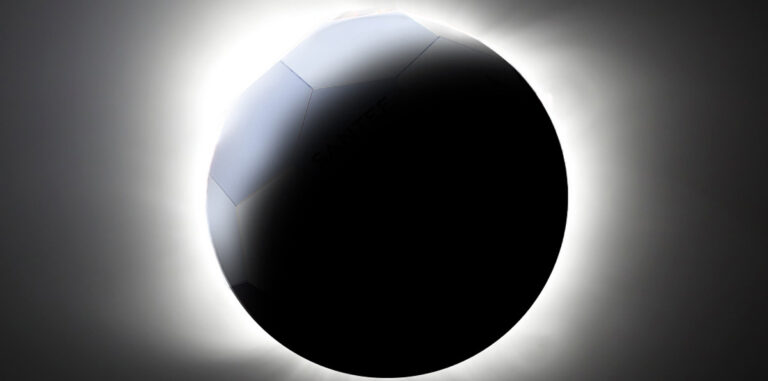COVID-19 is already having a huge impact on marketing, advertising and media. How are advertisers reacting to COVID-19? How will different media types ad revenues be impacted by the coronavirus health crisis? Portada got insights from brand and media agencies of the Portada Council System in order to gain some clarity. The answers to 7 crucial questions.
1. How are advertisers reacting to COVID-19?
“In this period, we know that consumers focus on basic needs and expect brands to supply and deliver them reliably. Consumers don’t want brands to stop advertising, but it must not be exploitative or insensitive,” Joseph Kiwanuka, Senior Manager, Cross-Cultural Connections, at UM tells Portada. A CPG brand marketer in the Portada network says that since the start of the coronavirus crisis, “marketing practices have remained consistent, one insight consistently being practiced is empathy. Messaging reinforces reassurance and value,” he adds.
2. How are brand marketers adjusting marketing expenditures?
Some corporations are freezing or postponing their plans (e.g. Turbotax as the tax deadline has been postponed to July 15). UM’s Kiwanuka notes that, “some of our clients are being tasked with pausing media campaigns and/or turning back media dollars to their corporations to help alleviate the impact to sales. Many matters regarding media budgets are still up in the air and it is still unclear as to the direction that media budgeting for the rest of the year will go. We are taking things a day at a time.”
3. How are different ad-categories being impacted?
The impact on business and marketing activity will vary across industries, depending on how much demand  and investment will be delayed as opposed to destroyed during this crisis. MAGNA, a centralized IPG Mediabrands resource that develops intelligence, expects the impact to be severe for the travel, restaurant, and the theatrical movie industry, significant for retail (check out Macy’s announcement to furlough 130,000 employees), finance and automotive, moderate for packaged food, drinks, personal care, insurance and pharma, and potentially positive for e-commerce and home entertainment. While the overall impact of the coronavirus on advertising will undoubtedly be negative (more details below), some sectors are actually starting to profit from the increased demand of families for home entertainment. “We are in a unique position during this crisis since we are the market leader in providing families online education at home. Day to day efforts include accelerating campaigns/creative to be in market sooner and even revising some original copy to align with current events,” a brand marketer in the online education sector tells Portada.
and investment will be delayed as opposed to destroyed during this crisis. MAGNA, a centralized IPG Mediabrands resource that develops intelligence, expects the impact to be severe for the travel, restaurant, and the theatrical movie industry, significant for retail (check out Macy’s announcement to furlough 130,000 employees), finance and automotive, moderate for packaged food, drinks, personal care, insurance and pharma, and potentially positive for e-commerce and home entertainment. While the overall impact of the coronavirus on advertising will undoubtedly be negative (more details below), some sectors are actually starting to profit from the increased demand of families for home entertainment. “We are in a unique position during this crisis since we are the market leader in providing families online education at home. Day to day efforts include accelerating campaigns/creative to be in market sooner and even revising some original copy to align with current events,” a brand marketer in the online education sector tells Portada.
4. Advertiser COVID-19 Reaction
MAGNA released its revised March 2020 Ad Forecast last Friday and expects all-media full year ad sales to decrease by -2.8% this year as the spending cut from most industry verticals will be mitigated by the incremental political spend ($4.9 billion, up +26% vs 2016), and a V-shaped rebound in the second half (Magna). It remains to be seen if this forecast is realistic, as there is a significant downside risk (see question 7 below).
5. Which media types will be particularly hard hit?
 Linear ad sales will suffer the most. MAGNA released its revised March 2020 Ad Forecast last Friday and it expects media suppliers’ total linear (National and Local TV, Radio, Print and OOH) ad sales to decline by -12% (-20% in the first half, -2.5% in the second half). The decline forecasted by MAGNA would be larger were it not for the political advertising revenues (2020 elections) to be obtained by linear TV, radio and print outlets later this year. Media vendors’ linear ad sales will shrink by -12% (incl. political) this year compared to approx. -4% per year in recent years. The decrease in advertising sales will reach -13% for national TV, -12% for OOH, -25% for print and -14% for radio. The outlook will be slightly more positive for broadcasters and publishers when including digital ad sales. Local TV’s non-political ad sales will also decline massively but political spending (almost US $5 billion, +26% vs 2016) will stabilize full year revenues (+1%).
Linear ad sales will suffer the most. MAGNA released its revised March 2020 Ad Forecast last Friday and it expects media suppliers’ total linear (National and Local TV, Radio, Print and OOH) ad sales to decline by -12% (-20% in the first half, -2.5% in the second half). The decline forecasted by MAGNA would be larger were it not for the political advertising revenues (2020 elections) to be obtained by linear TV, radio and print outlets later this year. Media vendors’ linear ad sales will shrink by -12% (incl. political) this year compared to approx. -4% per year in recent years. The decrease in advertising sales will reach -13% for national TV, -12% for OOH, -25% for print and -14% for radio. The outlook will be slightly more positive for broadcasters and publishers when including digital ad sales. Local TV’s non-political ad sales will also decline massively but political spending (almost US $5 billion, +26% vs 2016) will stabilize full year revenues (+1%).
The sharp decline in ad dollars is not necessarily a reflection of lower linear media usage in the last few weeks. In fact, the opposite is true: for instance in the multicultural space, Spanish-language news viewing increased as much as 50 percent last week among Hispanic adults 18-34 compared to the week prior and 123 percent versus last year. Hispanics over the age of 50 are already heavy news consumers, but their viewing has increased as well (29 and 46 percent, respectively). In addition, for the week of 3/16 -3/22 linear TV usage had as much as 182 percent increase among Asian American teens, compared to the same day the prior week.
The other major loser is experiential marketing as mass gatherings are out of the picture in the next few months. One brand marketer interviewed by Portada who wanted to remain anonymous told us that “investment is mantained in all channels except experiential.”
6. Digital Advertising: More Resilient
 At this stage, the total market decline anticipated (-3% or -$6.2bn vs 2019) remains less severe than the decline experienced in 2008-2009 (-20% or -$33bn vs 2007), mostly because of the weight and resilience of digital advertising today. Magna expects digital advertising to be more resilient at +4% (-2% in the first half, +10% in the second half). Digital media ad sales will grow by +4% this year and re-accelerate to +7% next year. Search will slow down to +4.5% growth while social and digital video (including Connected TV) will continue to grow by high-single digits.
At this stage, the total market decline anticipated (-3% or -$6.2bn vs 2019) remains less severe than the decline experienced in 2008-2009 (-20% or -$33bn vs 2007), mostly because of the weight and resilience of digital advertising today. Magna expects digital advertising to be more resilient at +4% (-2% in the first half, +10% in the second half). Digital media ad sales will grow by +4% this year and re-accelerate to +7% next year. Search will slow down to +4.5% growth while social and digital video (including Connected TV) will continue to grow by high-single digits.
It has to be said that at least in the short term digital advertising, see above -2% in the first half of 2020, will be negatively impacted. Third party revenue generating platforms have begun altering their payment processes. Altice-owned Teads and ad tech company GumGum Inc have sought changes to their payment arrangements with publishers, with Teads invoking force majeure on contractual arrangements and GumGum proposing extended payment terms.
7. Is the advertising forecast realistic? “V” vs “U” shaped recovery
According to Magna, “at this stage, both the macro-economic outlook and the corresponding advertising forecast present a high degree of uncertainty and significant downside risk for 2020. The key question is how long the social distancing imposed demand shutdown will be. The U.S. economy has never been through a period like this in modern economic times. Right now, governments are substantially repressing economic demand through social distancing rules.
While in Europe substantial efforts are being made to make sure that companies don’t go bust and employees don’t lose their jobs, that is not true for the U.S. despite the recently signed U.S. 2 trillion fiscal plan. This will become even more of an issue should the shutdown be expanded beyond April 30. Should the social shutdown be expanded to the late spring and summer, the economic and advertising recovery will be U shaped rather than V shaped. Therefore, the 2020 decline in advertising will be larger than the one in the Magna forecast.
Once the virus is under control the economy needs to be available to hit the ground running and that means that most employees need to remain employed to keep processes and know-how at their companies.
Another caveat poised by analysts is about the quality of the data regarding economic activity (and advertising demand). Most economic data is based on surveys. Are consumers and businesses going to be filling out surveys in this environment? Will data be reflecting accurate information or meaningless noise?
Editorial Staff @portada_online
Meet & Learn
Portada Live Events
Popular Now
Boost Your Sales
Who is Moving Now
The Latest

Navigating Cultural Fine-Tuning in Programmatic Advertising: Bridging the Gap Between DSPs and SSPs
To be successful, programmatic advertising targeting multicultural audiences needs to be fine-tuned. Advice from Augusto Romano, CEO of Digo Hispanic Media, and Hernán Zungri, SVP Sales & Operations, Digo Hispanic Media.

P&G To Continue to Grow Advertising, Emphasis on Home Care Category
The consumer goods giant increased its marketing spend around 14% year over year in the quarter ending March 31, 2024.

Lowe’s, Rockstar Energy Drink & More Sales Leads
Lowe’s, Rockstar Energy Drink and other brands targeting the U.S. consumer right now.

Changing Places: San Diego FC’s New Appointment’s Objective of Revolutionizing Soccer in the USA and More…
Explore San Diego FC’s transformative initiatives and key appointments, and stay informed on other industry developments.




